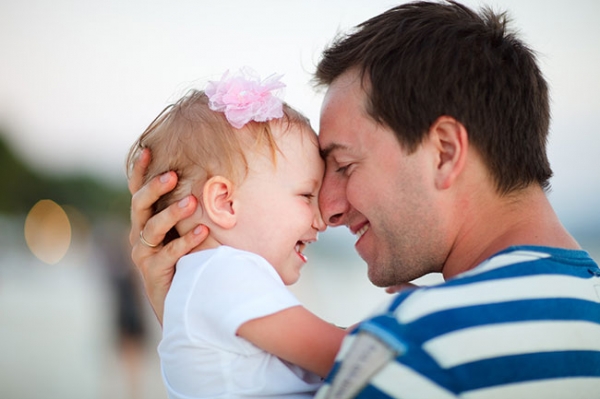Most parents know that attachment is some kind of “bond” that you have with your child and that it is important for your child’s wellbeing. While this is true, attachment entails so much more than just the bond between a caregiver and child.
We can learn a lot about attachment from animals; especially mammals. When a baby buck is born the baby instinctively knows who it’s mother is. It always keeps close to her as it KNOWS that she will help it survive by giving milk and offering protection. The baby buck is fully dependant on its mother for survival and the mother naturally provides in its needs.
Just like the mammals, infants cannot survive without the care and protection of their parents. Of all the species, human babies depend on their parents for survival the longest; babies cannot survive without their parents for the first few years of their lives. Attachment is therefore the biological innate need of babies to survive by attaching to their parents and it is activated by seeking proximity when in distress. It is a reciprocal process as it requires the parent to be attuned to the child’s needs and to fulfil in these needs by, for example; giving the baby milk when hungry and rocking the baby when crying.
So, if I give my child milk when she cries and make sure she has a clean diaper we’re all good with regards to attachment? Unfortunately, no. The emotional part of attachment is where most parents are uninformed. Although providing in the infant’s basic needs are important it is also important that parents are emotionally attuned to their child’s needs.
When parents are aware of their child’s emotional needs and fulfil these needs, such as comforting the child when in distress; the child learns that his parents are emotionally available for him; a realization that is crucial for emotional development.
By being attuned and aware of your child’s physical and emotional needs your baby learns that he can trust you, as his parents, to provide in his needs. This learnt trust turns into a belief the infant forms about his parents, the world and himself. When the infant develops the belief that his parents are trustworthy and reliable, he expands that belief to the world around him, therefore; the world and other people are trustworthy as well.
As the child then KNOWS that his parents will take care of him he, develops the belief that he as a person is okay and good enough to be taken care of. If the baby does not experience this, he learns that parents cannot be trusted. Unfortunately, this belief is then transferred to the child’s belief system about himself as well as the world in general. He will then believe that, because I cannot rely on my parents; I also cannot rely or trust that the world around me is a safe place and because my parents are not fulfilling my needs, somehow there must be something wrong with me….
This process impacts the child’s future relationships heavily as he will start all relationships with wariness in people; expecting them to fail him, often doubting his own worth in the process.
Therefore, by making sure that you have a secure attachment with your child, you will help him learn that he is okay, worthy and good enough (at the very least). That you as his parents are trustworthy and that the world is a safe place that can be explored confidently. Most importantly, not only will you be giving your child a head start in life personally, but also interpersonally; when it comes to all his future relationships.
If you know or suspect that your child does not have a secure attachment with an adult, there is still hope! Through Attachment Therapy, a skilled therapist can help the child and parent(s) to recreate a trusting relationship, by doing fun activities in a structured, therapeutic and supervised environment. Children who will benefit mostly from attachment therapy are children under the age of 11, whereas older children will need more extensive therapy to try and recreate the bond between child and parent.


